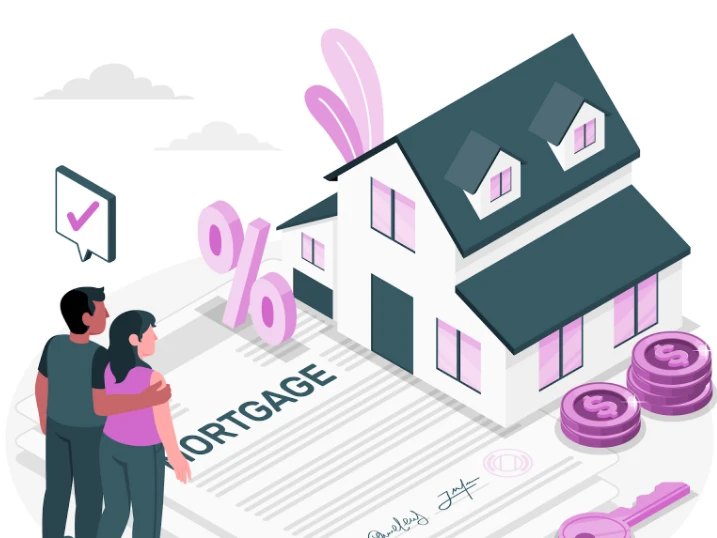Does the bank really own your house when you take out a mortgage? The concept of homeownership and mortgages can sometimes feel confusing. You take out a loan to buy a house, but the bank seems to have a stake in it too. Does that mean they technically own your house? The answer is no, but there's more to the story than a simple yes or no.
You Hold the Title, They Have a Secured Interest
When you purchase a house with a mortgage, you become the legal owner. Your name is on the title, granting you the rights and responsibilities of ownership. You can live in the house, make modifications (within building codes), and eventually sell it.
The bank, on the other hand, holds a secured interest in the property through the mortgage agreement. This means the house serves as collateral for the loan. If you fail to make your mortgage payments, the bank has the right to take steps to foreclose.
Think of it Like a Secured Loan
Imagine buying a car with a car loan. The car is yours, and you can drive it, but the lender holds the title until the loan is paid in full. If you stop making payments, the lender can repossess the car. Mortgages function similarly, but with real estate instead of a car.
The Mortgage: A Claim, Not Ownership
The mortgage gives the bank a legal claim on the property. This claim allows them to initiate foreclosure proceedings if you default on the loan. Foreclosure is a legal process where the bank takes possession of the house and sells it to recover the money you owe.
Building Equity Over Time
With each mortgage payment, you gradually build equity in your home. Equity represents the portion of the house you truly own. As you pay down the loan, the bank's claim on the property diminishes, and your ownership stake increases. Once the mortgage is fully paid off, you own the house outright, free and clear of any liens.
Exceptions to Consider
While uncommon, there can be situations where ownership works differently:
- Specific Loan Structures: In very rare cases, some loan agreements might involve the bank holding the title until a certain number of payments are made. However, this is not the standard practice.
- Land Contracts: Land contracts are alternative ways to purchase property, but ownership transfer may not occur immediately. It's crucial to consult with a legal professional if you encounter a land contract situation.
In Essence: Ownership with a Secured Obligation
Having a mortgage doesn't mean the bank owns your house. You are the legal owner, but the bank has a secured claim on the property until the loan is paid in full. Responsible mortgage payments allow you to build equity and eventually own your home free and clear.
 Continue with Facebook
Continue with Facebook
 Continue with Email
Continue with Email














